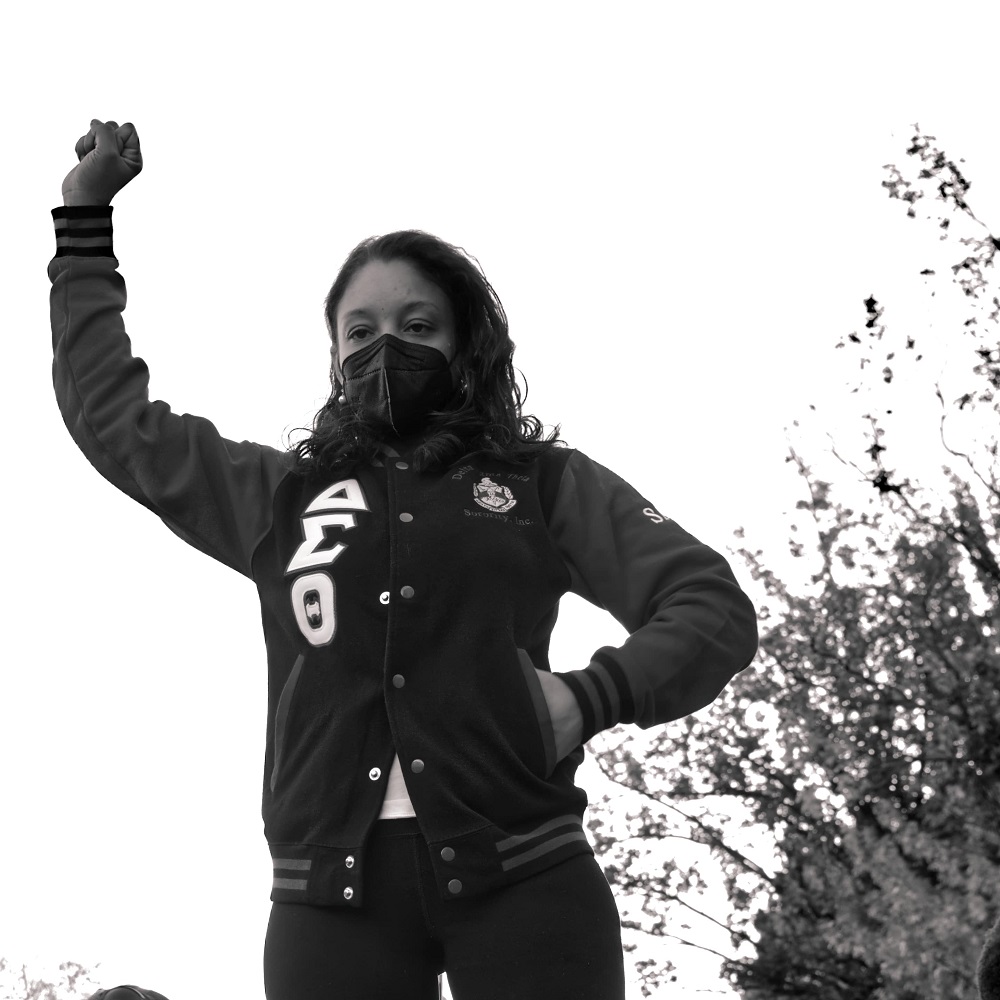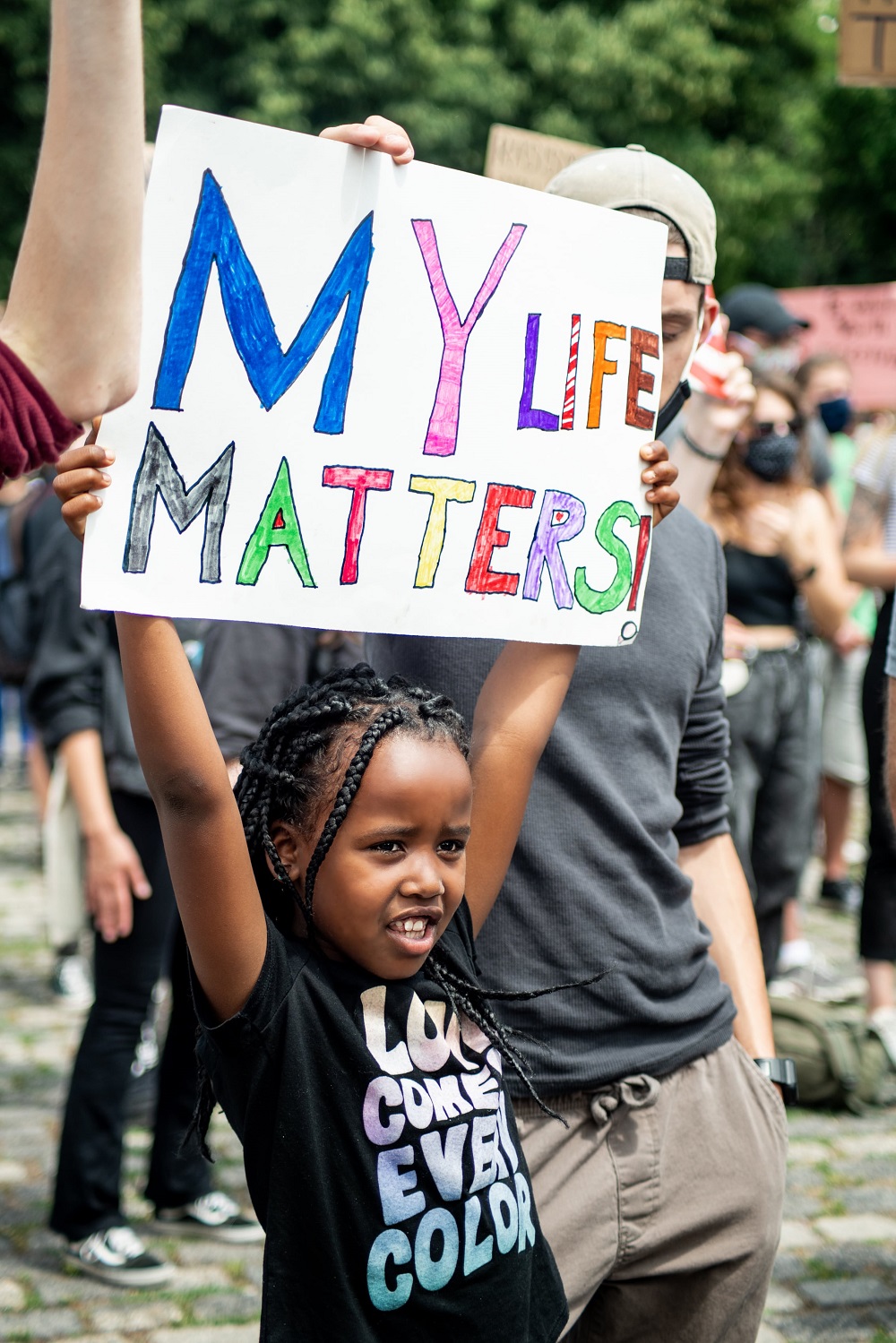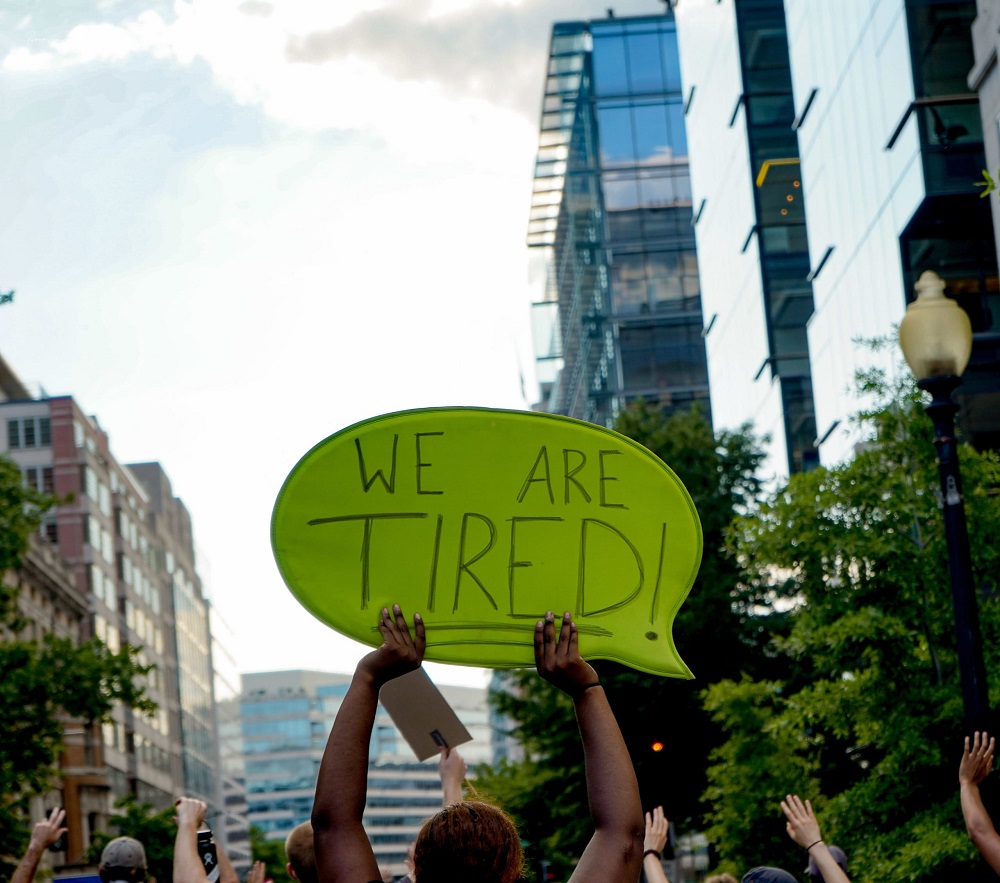By Alexandra Yeboah
Posted on December 17, 2021

“We tell Black men and boys to watch out at night, to know their rights, to survive. We remind them that this cruel world sees them as suspicious, aggressive and inherently criminal. But who reminds us—our mothers, daughters, girlfriends and partners—that we are also in danger?”
– Eternity Martis
There are no words that can adequately describe the stirring that awakens inside of your gut the moment you hear about the pain and trauma of another human being. You remember exactly where you were and what you were doing, as the horrid sequence of events played out before you. How the high-colour images sliced through the mundane task you were in the middle of and caused you to become frozen with fear.
What’s worse is when you see their photo splayed out with the gruesome headlines, and you see their face. And then you know. No matter how much you want to deny it. You know the hard truth—that their death was a senseless consequence of anti-tolerance. Systemic racism. Though your pain was experienced vicariously, the vibrancy of its sting could not be ignored.
Bringing visibility to the Black woman’s experience
The murder of George Floyd in 2020 sparked outrage first in the United States and then around the world. Tensions increased as police brutalities suffered by Black men continued to proliferate on an overwhelming scale. Canada has seen its own share of racial violence in the examples of Clive Mensah, Jermaine Carby, Albert Johnson, Andrew Loku, Marlon Neil, Raymond Lawrence, Daniel Clause and D’Andre Campbell. Black Torontonians represent 70 percent of civilian deaths in police shootings, according to the Ontario Human Rights Commission.
Despite the majority of headlines centered on Black men killed at the hands of an unjust system, the stories of the Black women who lost their lives to police violence were largely kept out of view.

Author Nia A.D. Langley further explains how Black women and girls are left out of broader discussions and research surrounding anti-Black police brutality in her #SeeHerName report: “Finding information about Black women who have suffered from police brutality is laborious, allowing for Black women to be erased from the narrative and rendering them invisible.”
Andrea Ritchie, one of the authors for the groundbreaking US-based #SayHerName in-depth study, further adds to this point: “Women’s experiences of policing and criminalization and resistance [have] become unworthy of historical study or mention, particularly when those writing our histories are also men.”
Although the experiences of Black women have been less than validated in discourse, they are no less affected by the unjust killings. Since 2015, reports have revealed that 48 women were killed by the police in the U.S.
Reclaiming the narrative
History has shown us that the voices of Black women have always had their place, even as society has fought hard to exclude them.
Storytelling has been one chosen means used by women leaders over time to defy racism and sexism, educate the masses and establish unity. In the 1960s, American civil rights activist Fannie Lou Hamer proved herself an early example of a forceful storyteller who often shared her firsthand account of mistreatment from officers as a way of raising awareness to the problem of police violence. During the 1980s, Mary Bumpurs and Veronica Perry were two other leaders who combated police violence in Black communities of New York City.
In Toronto, Canada, the Black Women’s Collective (BWC)—active between 1986 and 1989—were more prominent voices who used their platform to fight for the recognition of Black women’s equality in Canada and draw attention to the realities of Black women at the hands of the police. Through the Women’s Coalition against Racism and Police Violence, they protested the 1989 police shooting of 23-year-old Sophia Cook. BWC was also instrumental in starting Canada’s first newspaper for Black Women, Our Lives, to provide a forum for Black women to openly discuss issues relevant to them. In a 1989 editorial, BWC stated: “We too get harassed and physically abused by the police.”
These pioneering advocates used the medium of storytelling to be heard on the issue of police violence, as well as pave the way for other Black women activists to tell their stories and confront police violence in their own time.
Say Her Name
Decades later, Black women activists today have picked up the mantle left by those before them. In the United States, the death of 28-year-old Sandra Bland in Texas in 2015 (ruled a suicide) fueled forth the #SayHerName movement. In March 2020, the death of Breonna Taylor, a Black emergency medical technician (fatally shot eight times in her Louisville, Kentucky home) reignited the movement and brought greater visibility to the anti-Black police brutality faced by Black women and girls in the U.S., Canada, and all over the world. Taylor was killed two months before George Floyd.
In Canada, the #JusticeforRegis movement originated in response to the death of Regis Korchinski-Paquet, a 29-year-old Afro-Indigenous Black woman who died after her mother made a call to Toronto Police, requesting they intervene and take her daughter to the Centre for Addiction and Mental Health. During the encounter, Korchinski-Paquet fell from a 24th-floor High Park apartment balcony. No officers were charged for the incidents leading up to her death.
Our stories matter
Racism still exists in our lifetime. The cords of injustice are suffocating our nation, even as politicians past and present, including Premier Doug Ford and Conservative Party member Stockwell Day ,persist in stating that Canada is not a racist society. We have ample cause to raise our voices here and now. We speak for the Black mothers, daughters, sisters, aunts, and grandmothers whose lives have been torn apart due to police violence. We speak for those who are no longer with us, and whose names are forever engraved on the walls of our hearts. For them, we fearlessly carry their stories forward like a torch to blaze the path forward for the future generations who will follow us. We collectively stand loud and proud for our Black sons, daughters and future leaders of tomorrow.

Telling Black women stories is important, because as Langley says: “…it signals that all Black lives matter. Black women and girls deserve the same level of collective outrage that Black men and boys receive when they are brutalized and killed by police with impunity.”
Through the various platforms we have channeled, we access our human rights to speak boldly and without shame. The more we continually champion the stories of our Black women and our radical response to anti-Black police racism, the more we contribute to the rising movement and the cultivation of a world that can no longer stand for anti-oppression.
In remembering the names of our Black sisters and the enduring legacies that those killed by police violence have left behind, we honour them and dare never to forget.
Because we are the chief authors of our narratives of power. Our stories matter.

